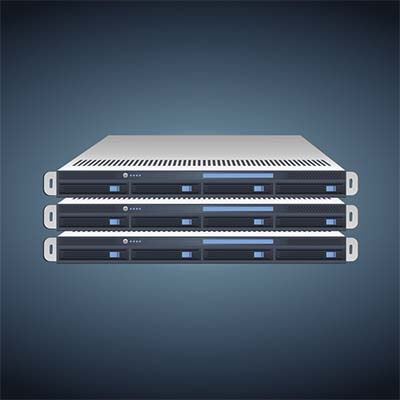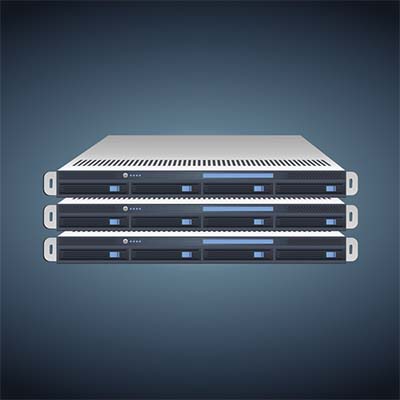Tech Term: Virtualization, Defined

Virtualization is a topic that a lot of people might hear about frequently, but not necessarily understand. It has a lot of details to keep in mind, but the concepts can be remembered easier by simplifying these details. We’ll take a closer look at some of the finer details of virtualization and what it means for your business’ infrastructure.
Tech Term: Virtualization, Defined

Virtualization is a topic that a lot of people might hear about frequently, but not necessarily understand. It has a lot of details to keep in mind, but the concepts can be remembered easier by simplifying these details. We’ll take a closer look at some of the finer details of virtualization and what it means for your business’ infrastructure.
Tech Term: Virtualization, Defined

Virtualization is a topic that a lot of people might hear about frequently, but not necessarily understand. It has a lot of details to keep in mind, but the concepts can be remembered easier by simplifying these details. We’ll take a closer look at some of the finer details of virtualization and what it means for your business’ infrastructure.
Defining Virtualization
Virtualization is the replication of a physical resource on your infrastructure (like a server, desktop, operating system, or storage solution) and its placement into a cloud-based infrastructure where it can be deployed in a scalable manner. By using a type of technology called a hypervisor software, a physical resource called the host can be divided into virtual machines called guests.
The guests draw on the resources provided by the host as they’re required, which gives them more functionality than any single piece of hardware can offer. Virtualization is the best way to get the most out of your technology, and it can even decrease the capital you spend on your business in the long run.
The Types of Virtualization
There are many different types of virtualization, and all of them have their own uses in a business setting:
- Data virtualization: This type of virtualization allows your business to collect information and place it in one location where it can be dispersed.
- Operating system virtualization: You can host multiple operating systems on a server.
- Desktop virtualization: You can replicate desktops to open them as needed.
- Server virtualization: One server can act as multiple servers through the use of virtualization.
- Network virtualization: You can use virtualization to transform one network into multiple isolated networks.
Does your business need to better understand and implement virtualization? Catalyst Technology Group can help. To learn more, reach out to us at (317) 705-0333.
3 Significant Ways Your Business Can Take Advantage of Virtualization

With cloud computing on the rise, more businesses than ever before are taking advantage of great new tools that allow them to get the leg up on the competition. With virtual technology services at their disposal, they are completely changing the way that they approach computing, and the best part is that these services are affordable even for smaller organizations with limited budgets. Here are three of the best ways your organization can implement virtualization solutions.
Software as a Service (SaaS)
Cloud-hosted software is part of a trend that is increasing the accessibility of applications designed to improve the way you do business. Thanks to this type of software, SMBs are able to grow more dynamically and achieve more flexibility in the way that they function. Examples of Software as a Service include well-known solutions such as Microsoft Office 365 and Google’s G-Suite, but just about any software that is offered through the cloud on a subscription basis can be deemed Software as a Service. The main attraction of SaaS is that businesses make smaller monthly payments to use the same software that would otherwise require a full-fledged license purchase. If you’ve ever had to purchase multiple licenses for multiple users, you know how this can be a great way to save money for any small business.
Voice over Internet Protocol (VoIP)
Virtual telephone solutions like VoIP are actively replacing the traditional telephony infrastructure in the office environment. This is mainly due to the fact that they decrease costs overall and provide a level of flexibility that’s never been seen before, both in and out of the workplace. Since you use the Internet to make and receive calls, you’re using something that you already pay for to eliminate an unnecessary expense. Plus, you can use VoIP apps on a traditional handset, a desktop or laptop, and even your smartphone, allowing you to take your office phone number on the go.
Hardware Virtualization
If you have been managing an entire in-house IT infrastructure on your own, you know how challenging it can be to manage servers and other networking components. Due to this immense responsibility, many organizations are choosing to outsource the care of their networking components through a hardware virtualization vendor. This allows companies to consolidate their servers to make better use of their resources, as well as save on energy costs, like air conditioning and electricity. Plus, you’ll be able to access any of these resources through the cloud, and you’ll be able to simplify your in-house network considerably.
If your business is ready to take the next step toward technological advancement, reach out to Catalyst Technology Group at (317) 705-0333. Our trusted technicians are happy to discuss what we can do for your business.

